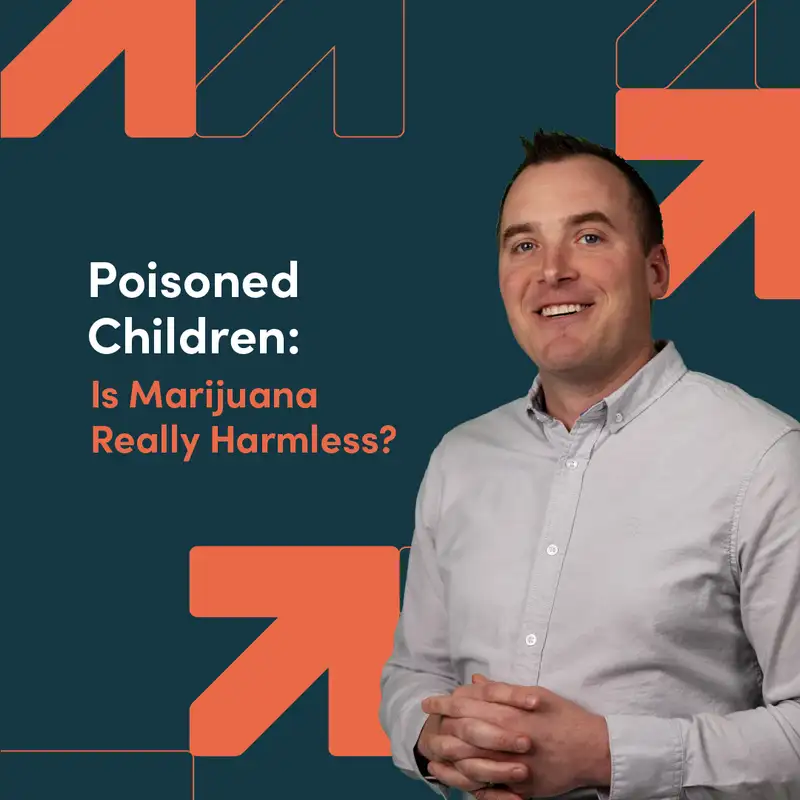Poisoned Children: Is Marijuana Really Harmless?
Hello, everyone. Thanks for listening to Wake Up, Look Up, a podcast where we connect events happening in real time to the gospel of Jesus Christ.
I'm Zach Weihrauch. And in today's episode, we're talking about poisoned children. We're asking the question, is marijuana really harmless? This is prompted by an article I read recently in the New York Times, which was charting the growing trend of cannabis-related poisoning of children incidents in America.
Most states have legalized marijuana, which means cannabis-related products are in more places. And the byproduct of that has been that an alarming number of children are ingesting products with cannabis in them.
So, for example, in 2009, there were 930 calls to poison control centers concerning marijuana-related products, whereas in 2024, there were 22,000.
That's a significant increase. But what's even more troubling than that is that 75% of that 22,000 involves significant issues related to children.
In fact, ingesting cannabis-related products for children has resulted and can result in hospitalization, seizures, comas, hallucinations, and even respiratory distress.
I mean, a long way of saying it. it can be fatal for kids to ingest these products. And the overwhelming evidence is that children are primarily ingesting THC gummies because they are in gummy form and oftentimes in packaging that's bright and colorful and appeals unintentionally or not to children.
The broader impact of this is that the more places marijuana is legalized, the more danger children are in of accidentally taking in one of these products.
Now, here's where I'm going with this. I'm not suggesting that it's automatically connected that when we legalize marijuana, children are going to get poisoned.
And I understand parental responsibility is a big part of this because in some ways it would be just as dangerous for parents parents with alcohol in the house to leave that alcohol available to their children or cleaning supplies or any number of other things.
Obviously, parental responsibility and discretion would solve a lot of these problems. But here's where I am going with this. You know, in our culture, there seems to be this idea that anything is acceptable morally as long as it doesn't hurt someone.
So as long as a particular action I'm considering doesn't result in direct harm to another person, then it is moral and okay.
The problem with that view is that it presupposes two things that I think are not true. The first is that I'm able to see all the ripple effects of a particular action.
In other words, I know if I push this button, someone doesn't get hurt. But do I really know if I push this button, what other buttons get pushed.
In other words, when the conversation surrounding marijuana was happening in our country, we were saying, if someone wants to smoke marijuana in the privacy of their own home, who are they hurting?
And if they're not hurting anyone, then shouldn't it just be legal? But of course, none of us could have foreseen that 22,000 cases of poisoning would occur.
Many of them, most of them, involving children. That was a few button pushes away. We lack the intellectual capacity to trace the moral implications of our actions.
And the second faulty thing is that intention. No one's saying that a person who buys THC gummies and keeps them at their house is intending to hurt someone, but it's no less devastating if your child's in the hospital from being poisoned that if you meant it to happen or didn't mean it to happen.
In fact, this is one of the reasons I think we need to be looking to God and not ourselves for our morality.
After all, Proverbs 14.12 reminds us what seems harmless actually can lead to destruction. That's because in our limited view, it seems harmless.
But only someone who can play out the kind of infinite butterfly effect of a moral action could actually tell us if something is is harmful.
It's one of the things we have to realize is there are times when God tells us something isn't good for us and we don't understand why, but he's never arbitrary.
It must be that he can see down through that butterfly effect and recognize the societal, relational, or personal harm that will come from that action.
And keep in mind that sin hides its true cost. James 1.15 tells us that we sin when desire gives rise to temptation and temptation to action and action to sin and sin to death.
We never see it coming. We never see how a moral action is going to undo us. A parent who's exploring THC gummies has no idea that the decision they're making will have devastating effects on their children, but it does.
But God can see that. Again, reminding you that in Isaiah 46.10, we're told that God sees the end And if that's true, that means that the writer of Proverbs was wise and right in Proverbs 3 when he says, Friends, we need to stop trusting our own moral intuition and start listening to the voice of God for ourselves, for our children, for our world.
Our moral perspective is limited. And the rise of poisoning related to marijuana is just one more example of the outcomes we could not have foreseen, but wouldn't have had to worry about if we had been listening to God who sees all.
Hey, thanks for watching this episode of Wake Up, Look Up. If you enjoyed it, please help us get the word out by sharing it with someone you think might benefit from it. And, while you’re here, make sure to subscribe to our YouTube channel to get further content or even download the CCC app where you'll find even more resources to help you grow in your faith and relationship with Jesus Christ.
Creators and Guests


